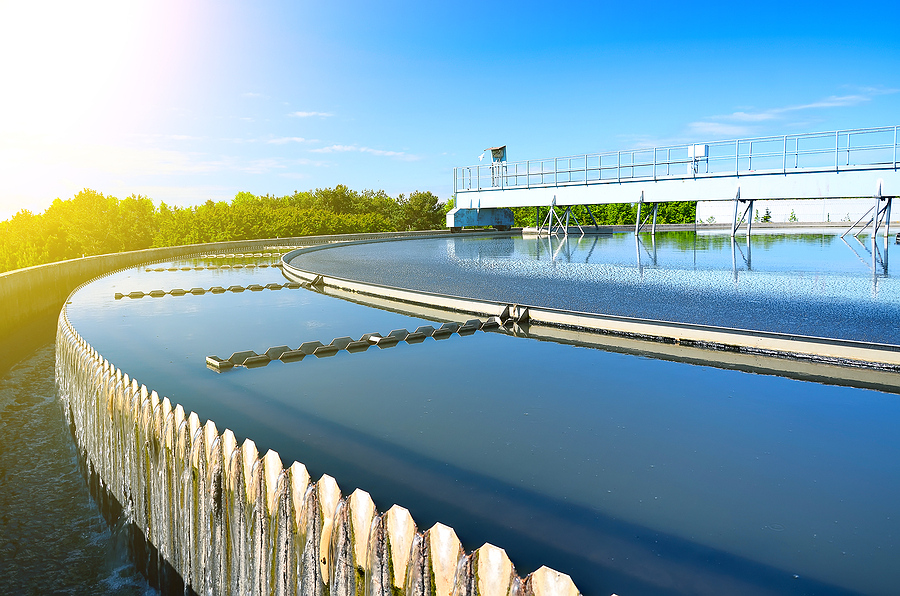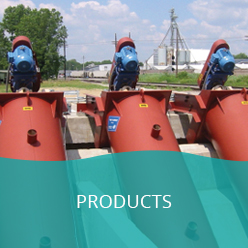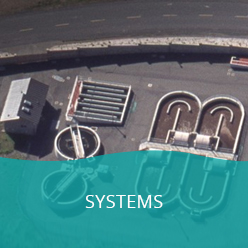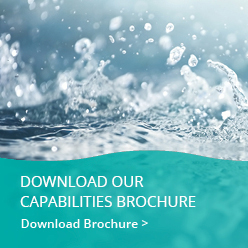When it comes to selecting and maintaining water purification equipment, including trash and screen rakes, understanding and adherence to water quality standards is critically important. Water quality standards are regulatory guidelines that define acceptable water contaminant levels and purity thresholds. For commercial operations, failing to comply with these standards can result in expensive fines, delays in production, and the potential for health risks. Selecting the equipment that allows seamless compliance with water quality standards mitigates these concerns.
The Role of Water Quality Standards
There’s no way to overstate the importance of water quality. Our current water quality standards regulate the amount of pollutants, chemicals, and other substances that can be present in certain water sources. This includes water sources that are used for drinking, agriculture, industrial processes, and everyday recreation purposes.
On a large scale, these standards allow environmental agencies to monitor water quality and identify areas of concern. This combined with monitoring by commercial operations helps to ensure that measures are put in place to improve water quality and reduce the harmful impacts of waterways that don’t meet the current standards.
The role of water quality standards is critically important in the short term for controlling the condition of water used for human consumption, human recreation, and for areas where wildlife depends on clean water. Measuring these standards allows agencies the opportunity to put pollution control measures into place, protecting our water sources for generations to come.
For commercial operations, choosing equipment that supports water quality standards is one of the most reliable ways to ensure these standards are met.
How Water Quality Influences Equipment Selection
Water quality and composition are important factors to consider when choosing water purification equipment. Water from various sources can differ in chemical composition and amounts of debris present in the water. For example, surface water sources typically contain higher levels of microbiological organisms than groundwater, and require water purification systems that are specific to these needs.
By choosing the right equipment for the job, businesses, including water treatment plants, can influence the efficiency and lifespan of water treatment systems. Here are just a few of the most important ways in which water quality influences equipment selection.
Capacity & Efficiency
Water quality standards play a role in decisions regarding both the capacity and efficiency of equipment. For businesses that manage large amounts of water, investing in high-capacity systems is key to managing these loads while continuing to meet water quality standards.
Technology Options
A business’s individual challenges in maintaining water quality will directly affect the type of technological water purification systems they consider. For example, water management that requires the removal of large amounts of debris will need to consider trash and screen rakes with the capacity to do so without running into significant upkeep and maintenance costs.
The Role of Contaminants
Each industry needs to consider its unique needs to meet water quality requirements. This includes identifying contaminants and choosing equipment and water treatment processes that address these needs according to water quality standards. For example, biological treatment systems are highly effective in treating contaminant issues without the use of chemicals to treat wastewater.
The Impact of Water Quality on Equipment Maintenance
When considering water quality standards, the main priority in choosing water purification treatment systems is to ensure that the equipment performs at a level that allows operations to efficiently meet those standards. However, while important, this isn’t the only consideration.
Choosing the right equipment based on purification and water quality needs can significantly impact system maintenance, both in the short and long term. For example, water that contains high levels of minerals, like calcium and magnesium, can cause the build-up of limescale deposits, significantly compromising performance.
Proactively monitoring water quality and equipment efficiency is an important step in minimizing wear and tear, while maximizing purification efforts.
Why Regular Monitoring Is Important
It’s a known factor that adherence to water quality standards requires continuous monitoring. Insights that come from water quality monitoring can help operations identify if their equipment isn’t performing at maximum capacity.
Even small changes in water quality that don’t signal an urgent situation can indicate that equipment isn’t functioning properly and is in need of maintenance. Addressing these issues sooner rather than later can save on costly repairs or replacements later down the road.
Keeping Up with Scheduled Maintenance
Each piece of equipment has a specific maintenance schedule that needs to be followed. It’s easy to let regular maintenance routines slip when systems are functioning efficiently, however, this can be costly down the road.
Neglecting regular maintenance can lead to overall system inefficiencies, higher operations costs, downtime, and potentially breach water quality standards.
Identifying the Need for Upgrades and Modifications
Water purification systems in wastewater management are costly. Ideally, with proper maintenance, it’s possible to get years of life out of quality water treatment equipment. With regular maintenance, it’s normal to discover that parts need to be replaced. The smaller investment in parts replacements helps to prevent the substantially costlier expense of replacing entire systems.
Additionally, water quality purification needs may change over time. This also comes with changes and improvements in water purification equipment and technologies. Adopting new technologies and adapting water purification systems based on current needs helps operations stay ahead of any issues that may arise.
Water Quality Standards Can’t Be Ignored When Choosing Water Purification Systems
Water quality standards are critically important, but they are more than just regulatory benchmarks. They influence every aspect of commercial or large-scale water purification. Selecting the right equipment and technology for the job is priority one in ensuring water quality standards are met.
At Lakeside Equipment we encourage you to stay informed about water quality standards and proactive in your approach to meeting them. High-quality, efficient equipment, combined with adherence to maintenance routines ensures equipment is protected while meeting rigorous water quality standards. Lakeside Equipment is happy to answer your questions about water quality standards and help you better understand the best options for meeting these standards.








